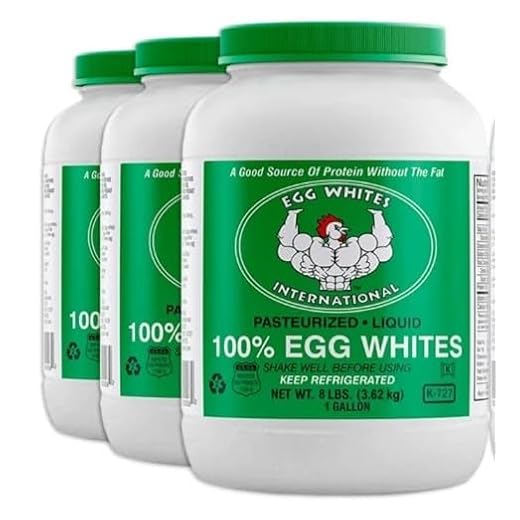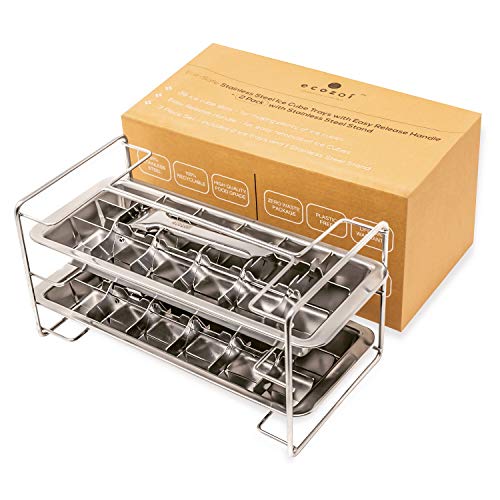



Refrigerating egg whites is a common practice for many people, especially for those who like to separate their eggs and use the yolks for other recipes. It’s important to know how long you can safely refrigerate egg whites to ensure their freshness and prevent any foodborne illnesses.
When it comes to refrigerating egg whites, it’s best to use them within 4-5 days. Egg whites have a relatively short shelf life compared to other foods, so it’s important to keep track of when you store them in the refrigerator. Remember to date the container to help you keep track of how long they have been sitting in the fridge.
If you’re unsure whether your egg whites are still fresh, there are a few telltale signs you can look out for. Fresh egg whites should have a clear and transparent appearance. If they have become cloudy or have a yellowish color, it’s best to discard them. Additionally, if they have a foul smell or develop a slimy texture, it’s a definite sign that they have gone bad and should not be consumed.
To maximize the shelf life of your egg whites, it’s important to store them properly. Make sure to transfer the egg whites to a clean and airtight container before placing them in the refrigerator. This will help prevent any cross-contamination and keep them fresher for longer. It’s also a good idea to keep them away from any strong-smelling foods, as egg whites can easily absorb odors from their surroundings.
So, next time you separate your eggs and have some leftover egg whites, remember to properly refrigerate them and use them within 4-5 days. By following these guidelines, you can ensure the freshness and safety of your egg whites for all your delicious culinary creations!
The Effectiveness of Refrigeration for Storing Egg White
Refrigeration is a crucial method for storing egg whites, as it helps prolong their freshness and prevent bacterial growth.
Egg whites are highly perishable and can quickly spoil if not stored properly. However, refrigeration provides a controlled environment that slows down the spoilage process and maintains the quality of egg whites for a longer period of time.
The low temperature of the refrigerator inhibits the growth of bacteria that can cause foodborne illnesses. Bacteria require certain conditions, such as warmth and moisture, to multiply rapidly. By keeping egg whites refrigerated, the growth of bacteria is significantly slowed down, reducing the risk of contamination.
When refrigerated, egg whites can retain their freshness for up to four to six days. The cool temperature helps preserve the proteins in the egg whites, preventing them from breaking down and becoming watery. This is especially important if you plan to use the egg whites in recipes that require a stable foam, such as meringues or soufflés.
It is important to note that egg whites should be stored in an airtight container or a sealed zip-top bag to prevent absorption of odors or flavors from other foods in the refrigerator. Egg whites have the ability to absorb odors easily, which can alter their taste and quality.
In conclusion, refrigeration is an effective method for storing egg whites. It prolongs their freshness, inhibits bacterial growth, and helps retain their quality for a longer period of time. By following proper storage guidelines, you can enjoy the benefits of using fresh egg whites in your culinary creations.
Maximum Safe Refrigeration Time for Egg White
Egg white is a versatile ingredient that can be used in various recipes, from meringues to omelettes. However, just like any other perishable food, egg white also has a limited shelf life, even when stored in the refrigerator. It is important to understand the maximum safe refrigeration time for egg white to ensure food safety and avoid any health risks.
Refrigeration Guidelines for Egg White
When it comes to refrigerating egg white, it is crucial to follow proper guidelines to maintain its quality and safety. Here are some important points to consider:
- Egg white should be separated from the yolk before refrigeration, as the yolk can promote bacterial growth and decrease the shelf life of the egg white.
- Place the separated egg white in a clean, airtight container, ensuring there are no cracks or leaks.
- Label the container with the date of separation to keep track of its refrigeration time.
- Store the egg white in the coldest part of the refrigerator, such as the back of the top shelf.
- Keep the egg white refrigerated at a temperature below 40°F (4°C) at all times.
Maximum Refrigeration Time for Egg White
The maximum safe refrigeration time for egg white is generally around 2-4 days. This timeframe applies to both store-bought egg whites and homemade egg whites. After this period, the egg white may start to deteriorate in quality and is more likely to harbor harmful bacteria.
It is important to note that the maximum refrigeration time may vary depending on the freshness of the egg white and the storage conditions. If the egg white begins to develop an off smell or unusual texture, it is best to discard it to avoid any potential foodborne illnesses.
Additionally, it is not recommended to freeze egg white as it can change its texture and affect its ability to whip properly.
By understanding and following these guidelines, you can ensure the maximum safe refrigeration time for egg white, maintaining both its quality and safety. Remember, it is always better to be cautious when it comes to perishable foods to avoid any potential health risks.
Factors Affecting the Shelf Life of Refrigerated Egg White
Refrigerating egg white is a common practice to extend its shelf life and prevent bacterial growth. However, several factors can affect the quality and freshness of refrigerated egg white. These factors include:
- Temperature: The temperature at which the egg white is stored plays a significant role in its shelf life. It is important to keep the egg white refrigerated at a temperature below 40°F (4°C) to inhibit bacterial growth and maintain freshness.
- Proper storage: Storing egg white in a clean and airtight container is crucial for maintaining its quality. This prevents contamination and helps in preserving its freshness for a longer period.
- Age of the eggs: Fresh eggs tend to have a longer shelf life compared to older eggs. Using fresh eggs for separating egg whites ensures better quality and a prolonged shelf life for the separated whites.
- Quality of eggs: The quality of the eggs used for separating the egg whites affects the shelf life of the whites. Eggs with cracks or those that have been improperly stored may result in compromised egg white quality.
- Exposure to air: Oxygen exposure can lead to the deterioration of egg white quality. It is important to cover the container tightly to minimize exposure to air and prevent the egg white from absorbing odors from other foods in the refrigerator.
- Contamination: Cross-contamination can occur if the egg white comes into contact with other foods or utensils that are not clean. This can introduce bacteria and reduce the shelf life of the egg white.
By taking these factors into consideration and following proper storage practices, refrigerated egg white can maintain its quality and freshness for an extended period, ensuring it is safe for consumption.
Signs of Spoiled Refrigerated Egg White
1. Foul Odor: One of the most obvious signs that egg white has gone bad is a strong and unpleasant smell. If you notice a rotten or sulfuric smell, it’s best to discard the egg white.
2. Discoloration: Fresh egg white is clear and has a slight yellowish tinge. If you notice any pink, green, or gray discoloration, it is a clear indication of spoilage and the egg white should not be consumed.
3. Change in Texture: Spoiled egg white may become slimy or develop a gel-like texture. This change in consistency is a sign that bacteria or mold has started to grow, and it is unsafe to consume the egg white.
4. Floating: If you place egg white in a glass of water and it floats, it means that it has gone bad. Fresh egg white sinks and stays at the bottom of the glass, while eggs that have spoiled develop gas inside the shell, causing them to float.
5. Clumping: Healthy egg white is liquid and can be easily poured or whisked. If you notice clumps or chunks in the egg white, it could be a sign of spoilage and should be thrown away.
It is important to note that consuming spoiled egg white can lead to foodborne illnesses, so it is always better to err on the side of caution and discard any egg white that shows signs of spoilage.
Tips for Properly Storing Egg White in the Refrigerator
Egg whites are a versatile ingredient that can be used in various recipes, from omelettes to soufflés. To ensure their quality and freshness, it is important to store them correctly in the refrigerator. Here are some tips to help you properly store egg white:
Separating and Handling Egg White
When separating egg white from the yolk, ensure that there is no yolk mixed with the egg white. Even a small amount of yolk can prevent the whites from properly whipping and cause them to spoil faster. Use a clean and dry bowl to separate the eggs, and transfer the egg white into a separate container.
Note: It is easier to separate eggs when they are cold, but egg whites reach their fullest volume when they are at room temperature.
Storage Container
Choose a container that is specifically designed for food storage and has an airtight seal. Mason jars or plastic containers with lids work well for this purpose. Make sure the container is clean and dry before adding the egg whites.
Labeling and Date
Clearly label the container with the date of separation. This will help you keep track of its freshness and prevent any confusion later on. Egg whites can typically be stored in the refrigerator for up to four to five days.
Refrigerator Placement
Store the container of egg whites in the coldest part of your refrigerator, which is usually the back or the bottom shelf. Avoid keeping it in the refrigerator door as it is subject to temperature fluctuations due to frequent openings.
Freezing Egg Whites
If you have more egg whites than you can use within the storage period, freezing them is a great option. Transfer the egg whites to a freezer-safe container or an ice cube tray and label it with the date. Frozen egg whites can be kept for up to a year in the freezer. Just remember to thaw them completely before using.
By following these tips, you can enjoy fresh and high-quality egg whites for your culinary creations. Proper storage ensures that they retain their texture, flavor, and nutritional value.
FAQ
How long can you refrigerate egg white?
Egg white can be refrigerated for up to four days. Just make sure to store it in a tightly sealed container to prevent any bacteria from contaminating it.
Can you freeze egg white?
Yes, you can freeze egg white. It can be stored in the freezer for up to 12 months. Be sure to thaw it in the refrigerator before using.
What can I do with leftover egg white?
There are several options for using leftover egg white. You can use it to make meringue, add it to smoothies for extra protein, whip it and use it as a topping for desserts, or make angel food cake.
How can you tell if egg white has gone bad?
If egg white has gone bad, it will have a foul odor and a slimy or cloudy appearance. It is best to discard any egg white that shows these signs of spoilage.










